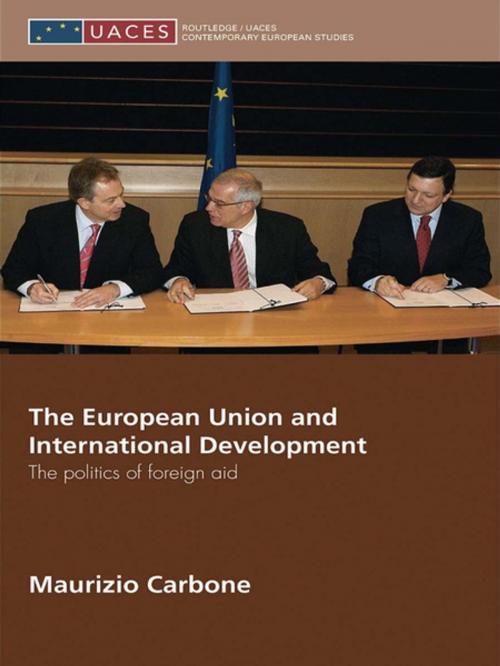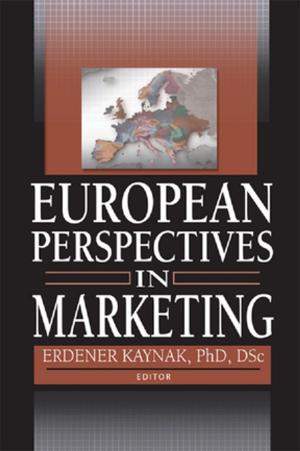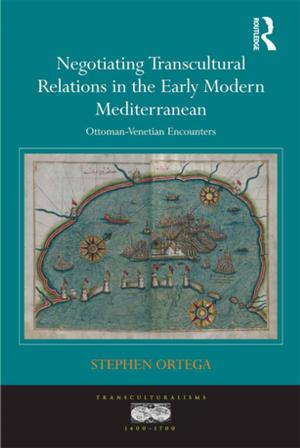The European Union and International Development
The Politics of Foreign Aid
Nonfiction, Social & Cultural Studies, Political Science, International, International Relations| Author: | Maurizio Carbone | ISBN: | 9781134122813 |
| Publisher: | Taylor and Francis | Publication: | December 12, 2007 |
| Imprint: | Routledge | Language: | English |
| Author: | Maurizio Carbone |
| ISBN: | 9781134122813 |
| Publisher: | Taylor and Francis |
| Publication: | December 12, 2007 |
| Imprint: | Routledge |
| Language: | English |
The European Union is a leading actor in international development, providing more than half of the world’s foreign aid, but also a unique case, combining the characteristics of a bilateral and a multilateral donor. Despite the general acknowledgment that policy coordination substantially improves both the effectiveness of foreign aid and the visibility of the EU in the international arena, Member States have consistently resisted any intrusion into what they consider a key area of their national sovereignty. The increases in volume of aid, the ambitious agenda on aid effectiveness, and the adoption of the European Consensus on Development indicate a change of direction.
Using development policy as a starting point, this book provides a systematic analysis of the interaction between the European Commission and Member States. It explores the conditions in which the European Commission influences outcomes in the EU decision making process. It ultimately argues that the European Commission plays a leadership role, but this leadership is contingent upon the presence of an institutional entrepreneur, its internal cohesiveness, and the astute use of a repertoire of tactics.
Demonstrating that development policy may provide fresh insights into EU integration theory, this book will be of interest to students and scholars of European Politics and International Development.
The European Union is a leading actor in international development, providing more than half of the world’s foreign aid, but also a unique case, combining the characteristics of a bilateral and a multilateral donor. Despite the general acknowledgment that policy coordination substantially improves both the effectiveness of foreign aid and the visibility of the EU in the international arena, Member States have consistently resisted any intrusion into what they consider a key area of their national sovereignty. The increases in volume of aid, the ambitious agenda on aid effectiveness, and the adoption of the European Consensus on Development indicate a change of direction.
Using development policy as a starting point, this book provides a systematic analysis of the interaction between the European Commission and Member States. It explores the conditions in which the European Commission influences outcomes in the EU decision making process. It ultimately argues that the European Commission plays a leadership role, but this leadership is contingent upon the presence of an institutional entrepreneur, its internal cohesiveness, and the astute use of a repertoire of tactics.
Demonstrating that development policy may provide fresh insights into EU integration theory, this book will be of interest to students and scholars of European Politics and International Development.















